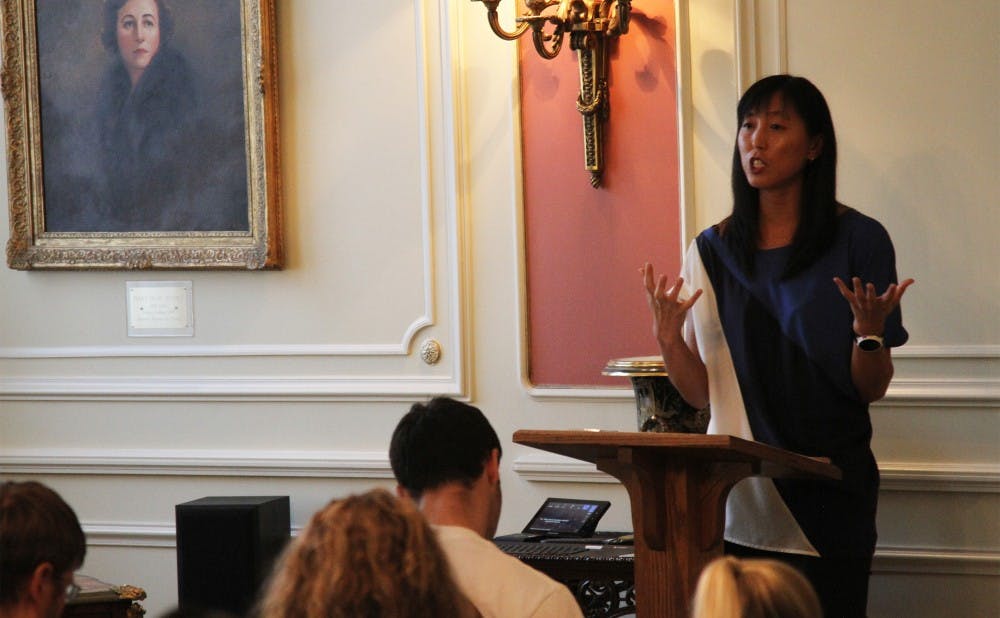With an activist’s passion, A. Naomi Paik delivered a keynote lecture Thursday on the “rightlessness” of Guantanamo Bay prisoners, the futility of human rights and the threats of the Trump administration—or, as she called it, “the 45 regime.”
An assistant professor of Asian American studies at the University of Illinois at Urbana-Champaign, Paik was invited to be the International Comparative Studies program's fall keynote speaker. She discussed her new book, “Rightlessness: Testimony and Redress in U.S. Prison Camps Since World War II,” which discusses Guantanamo Bay prison’s history of hunger strikes and force-feeding, including that of the Yemeni prisoner Adnan Farhan Abdul Latif.
“Although [Latif] expressed his desire to die and engaged in the strike for more than six months, starving himself to death was impossible,” she said.
Every day, the prison staff tied Latif to a “safety restraint chair” and forced a feeding tube through his nose into his stomach, she explained. Latif later killed himself, after spending more than 10 years in the military prison.
Such cruelties, Paik said, are only possible because of Guantanamo’s unusual status. The legality of the remote naval base—which has been leased from Cuba since 1903—is ambiguous and disputed.
“The U.S. state claims it is a lawless space,” she said. “No national or international laws apply.”
Though Paik focused on the torture and self-harm that pervades the detention camp, she noted that rights abuses in the U.S. are nothing new.
“Rightlessness is as salient now as ever in the ‘regime of 45,’” she said, referring to the administration of President Donald Trump. “There are millions of people around us, including my students and friends, who are already experiencing violence as '45' criminalizes migrants, Muslims, refugees and people of color.”
In Paik's opinion, the racism is still deeply engrained within the U.S. She pointed to the internment of Japanese Americans during World War II, the detention of HIV-positive Haitian refugees in the 1990s and the torture of enemy combatants in the War on Terror as examples.
“I don’t want to have a kind of negative American exceptionalism,” she said. “But the reason why I focus on the United States is because, until recently, the U.S. has held itself up as the defender of human rights around the world… Yet it has also witnessed an expanding imprisonment regime.”
Paik also noted that the concept of rights itself was part of the problem.
“Rightlessness is a necessary condition for rights to have meaning in the first place,” she said. “I think of rights as a harm reduction, not a tool for justice.”
Senior Lina Palancares was one of the dozens of ICS students who attended the lecture.
“I thought it was super interesting,” she said. “No one would think to argue against human rights, but it was interesting that the creation of rights for some can exclude others from the community.”
Junior Helen Yang was also in attendance, despite not being in the ICS program. She noted that hearing Paik speak was eye-opening as she hadn't been been exposed to some of those topics before.
“I went to a great school, but one of the most apparent things when I came to college was that there were a lot of things that I didn’t learn,” she said. “The way the U.S. navigates international affairs is something I’ve never been able to formally learn, so seeing this event was really interesting.”
Get The Chronicle straight to your inbox
Signup for our weekly newsletter. Cancel at any time.

